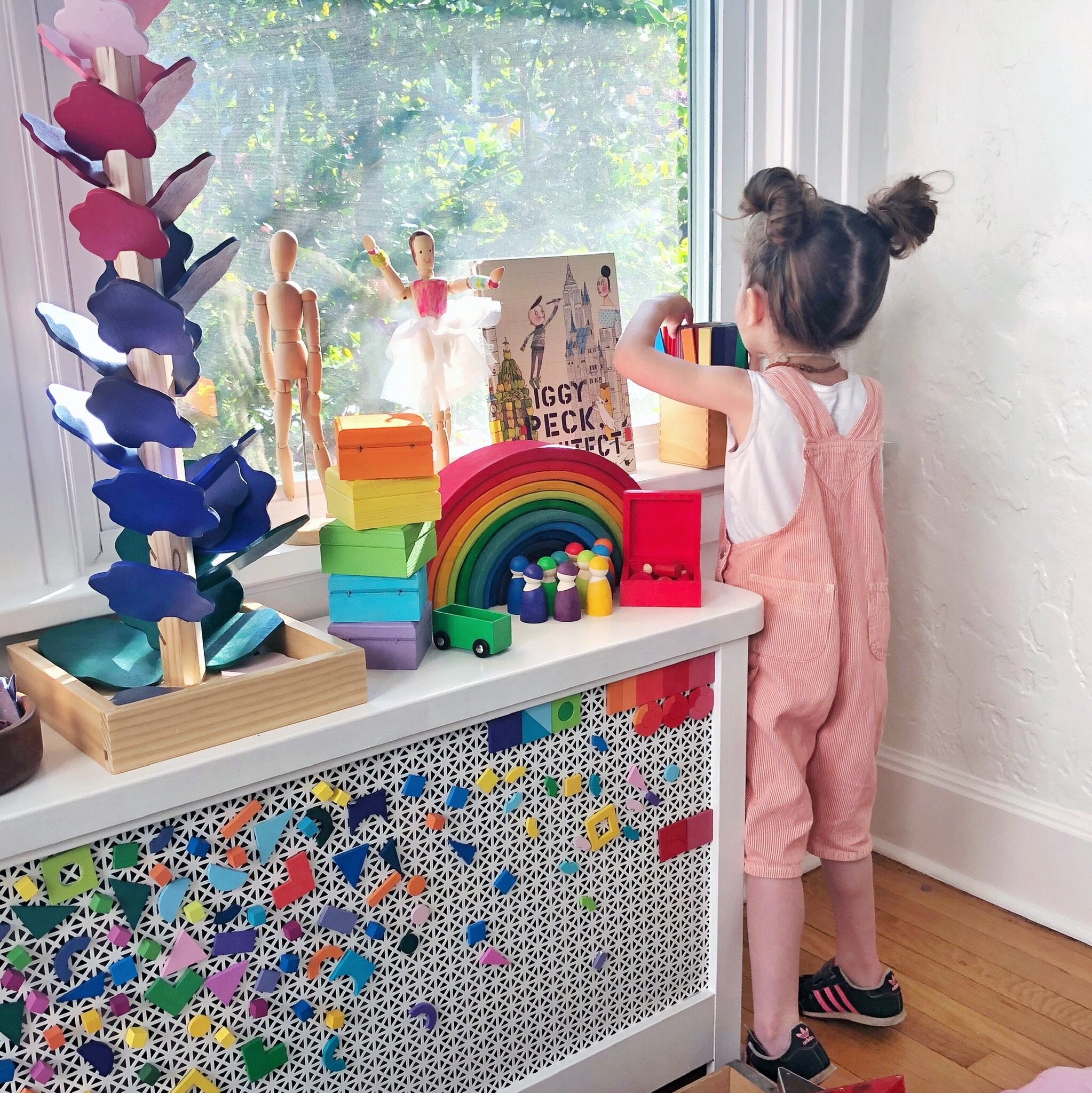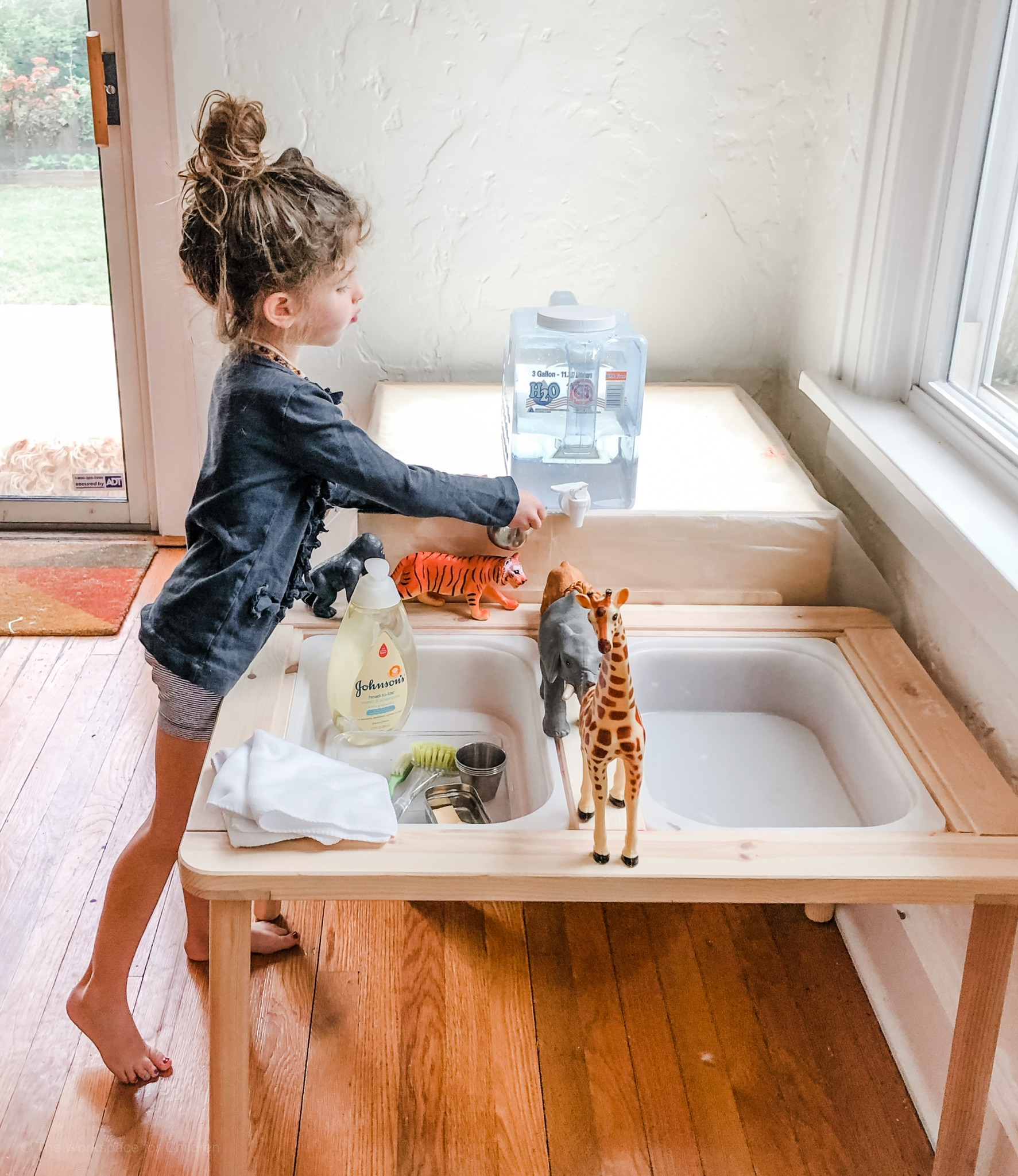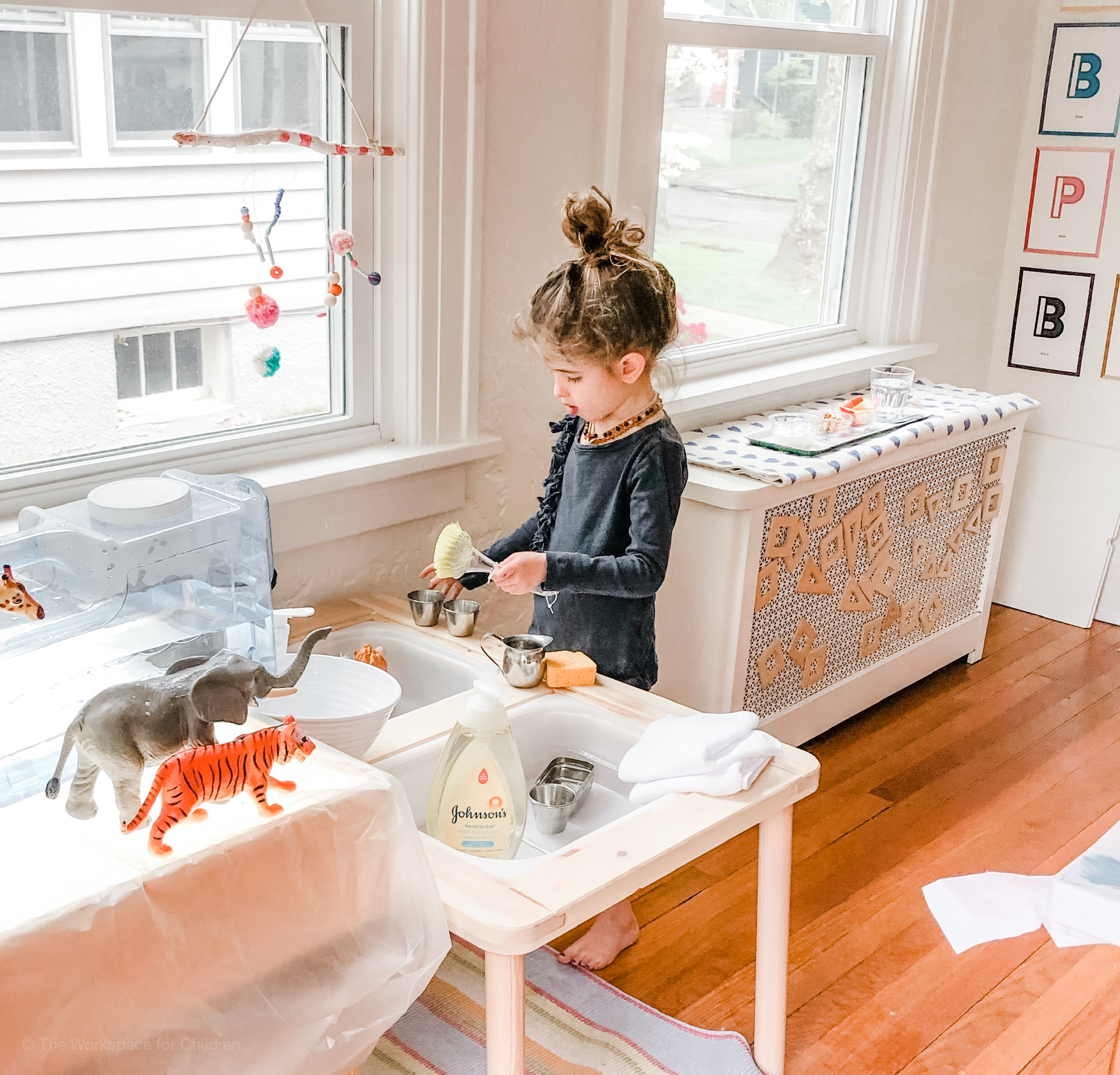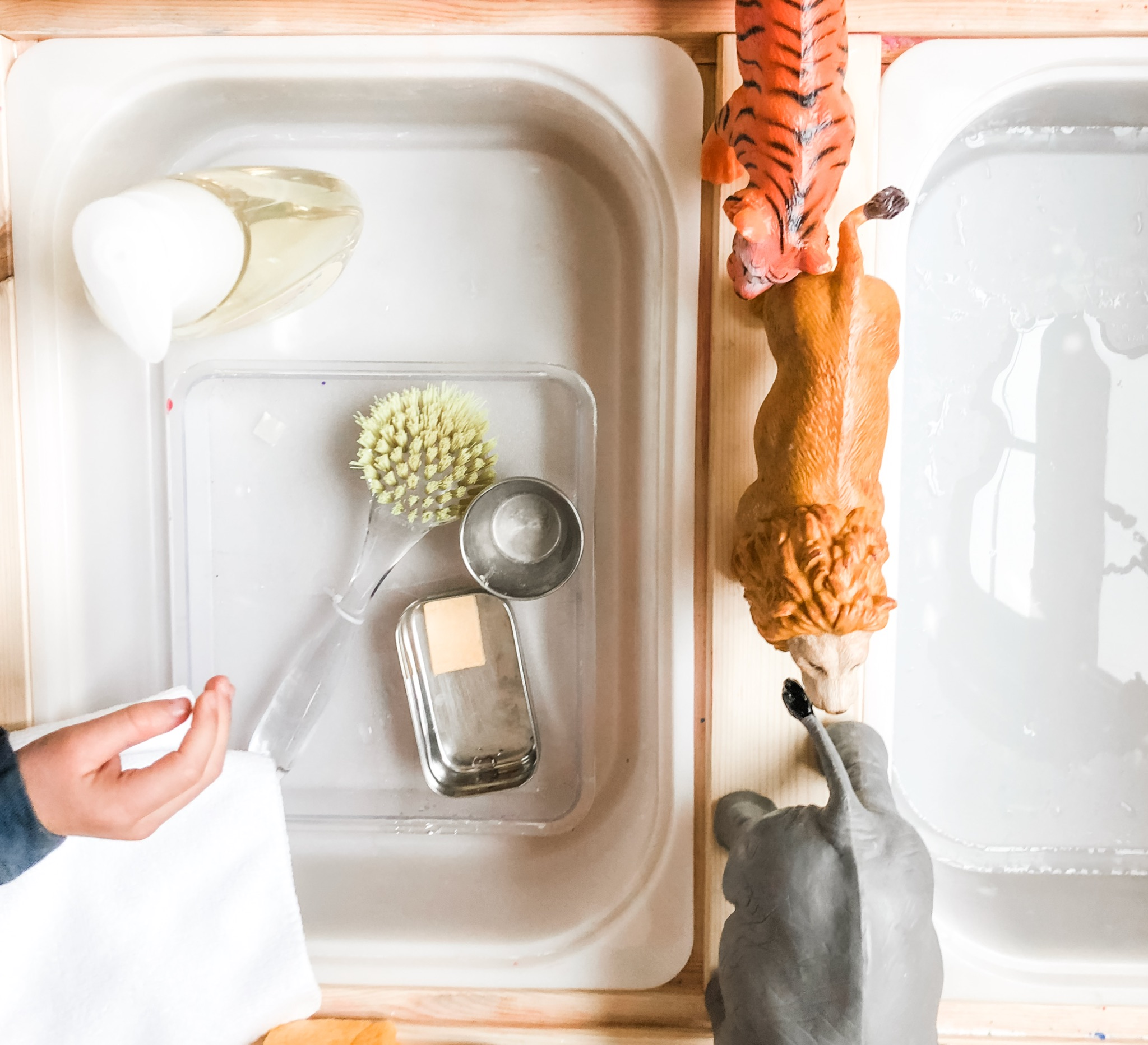Water Play for Kids: The Benefits and Easy Setup for Parents | Animal Washing Station Idea
/Water play is GREAT for parents.
Here’s Why:
You can use things you already have
It is basically free
Your child will likely play for a long time even though the activity takes less than five minutes to set up.
There very little mess to clean up. It is probably the cleanest mess your child will ever make.
Your child will probably get soap and water all over themselves so you can count it as a bath
(LOOKING FOR LINKS? SCROLL TO THE BOTTOM OF THIS POST!)
Water Play is great for your child.
Here’s why:
Your child will be exploring washing, which is a something they’ve been experiencing their whole lives. Having the opportunity to master their own life experiences by repeating them on a smaller scale helps them process and make sense of their world.
They are playing with concepts like empty and full, cause and reaction, wet and dry. They are using their developing muscles to work up a lather and fine motor skills to fill and pour.
They will inevitably spill and be given the opportunity to wipe up after themselves in a no-pressure situation. Sometimes a big spill during dinner-time can feel overwhelming and upsetting. Letting them clean up these smaller spills allows for the opportunity to practice and master the skill of mopping up on their own terms.
Private Speech: When you child is engaged in this washing station, you will likely hear them chatting away with themselves. Why does this matter? Private speech is an indicator of cognitive development. It is so important for language development, self-regulation and problem solving. (Plus, it is so darn sweet to listen to.)
This animal washing station you see in the pictures is an ongoing hit at our house. We used our favorite animals, but you should use anything your children are interested in. Truck washing, baby-doll washing, dishwashing, it all works the same.
We used soap, sponges, an old toothbrush and dishwashing tool, some little cups and pitchers, and of course… WATER! We also set this activity up in our IKEA sensory table, but any old bins and buckets on the floor work just as well.
How to support your child in playing successfully with water:
Give them space. Don’t ask a million questions, do not direct the play or micro-manage spillage. It’s just water after all. Do not worry about regulating the amount of soap or water. That is not the point here. The goal is to allow them to engage in self-directed play. Give yourself permission to let your child use as much as they want. A little trick? Save old soap bottles and just fill them with about an inch of soap and the rest water. That way they can still make lots of soapy bubbles and you do not need to worry about wasting.
Do stay nearby, but be engaged in your own work. When they try to draw you in and ask you to play, simply say, “I am doing my work while you do yours.” Be nice, but boring. When they ask you questions and try to chat with you, act very interested in whatever you are doing.
I am providing a materials list for this project, but PLEASE do not feel that you need to buy anything. Be creative and use what you have around the house. Bins, buckets or the bathtub work!
If there is one thing you should buy if you don’t already have one, it is a water dispenser.
Why? It helps children be independent, and you don’t need to continually get up and retrieve more water. Using a self-serve jug encourages self-regulation. Children learn more and faster about how much soap and water they need when they can do it themselves.
Shop this post:
Waterproof Pants / Water Dispenser / Water Pump / Water Table / Plastic Bins / Baby Dolls / Funnels / Paintbrushes / Washcloths / Whisk / Color Drops / Sponges / Bath Caddy / Condiment Cups / Baby Soap / Brushes / Jumbo Animals
If this post was interesting to you, you also might like THIS post.
I hope you found this post helpful. If you want to hear more from me, please be sure to subscribe to my blog and join the conversation over on Instagram.
-Lizzie
Have you taken our new Play Personality Quiz?
Check out our most popular E-Books!











Rescuing them from discomfort also robs them of resilience.